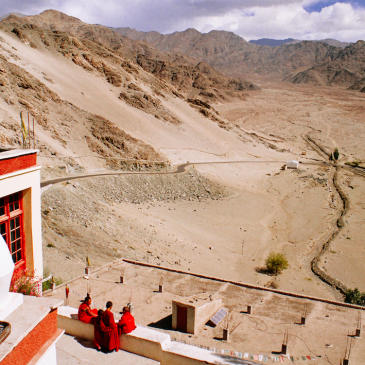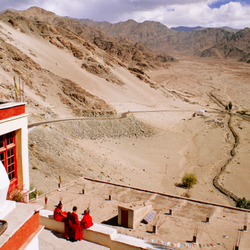Stories of change on climate compatible development from CDKN and ICLEI South Asia

The Climate and Development Knowledge Network (CDKN) and 5 ICLEI offices joined forces to reflect on the drivers, barriers, enabling factors and innovative solutions that lead to climate compatible development at city and sub-national level and released ‘Inside stories’ from South Asia, Southeast Asia, Africa and Latin America. ICLEI South Asia worked with CDKN and partners in the region to develop four such Inside Stories.
The ‘Inside stories’ are case studies of developing country experience in designing and delivering climate compatible development. The target audience includes policy makers, development practitioners and academics. The four South Asian stories which have been released as part of the Inside stories on climate compatible development are as follows:
- Addressing heat-related health risks in urban India: Ahmedabad’s Heat Action Plan – This report looks at how the local community of Ahmedabad in Western India is preparing for the increasingly extreme heat of the city, through an early warning system and heat preparedness plan. Ahmedabad is the first city in South Asia to comprehensively address the health threats of extreme heat.
- Integrating urban agriculture and forestry into climate change action plans: Lessons from Sri Lanka – This Inside Story illustrates how Sri Lanka’s Western Province is promoting urban and peri-urban agriculture and forestry as a strategy to reduce vulnerability to climate change, while enhancing urban liveability and livelihoods.
- Integrating climate change concerns into disaster management planning: The case of Gorakhpur, India – This case study evaluates how a climate ¬mainstreaming programme such as the one implemented in Gorakhpur District might inspire other local governments in a similar position to effectively incorporate climate change considerations into disaster management planning within their districts.
- Local approaches to harmonising climate adaptation and disaster risk reduction policies: Lessons from India – In the disaster-prone arid zones of Barmer and Leh, India, climate change is exacerbating local vulnerability to disasters. This report looks at how best to overcome the challenges of integrating effective disaster risk reduction and climate adaptation into development planning and suggests how other communities can address similar challenges by using windows of opportunity in post-disaster situations.
CDKN works in partnership with the decision-makers in the public, private and non-governmental sectors nationally, regionally and globally to hold strongly to the ideals of human development and environmental sustainability. For more information about CDKN, visit:
